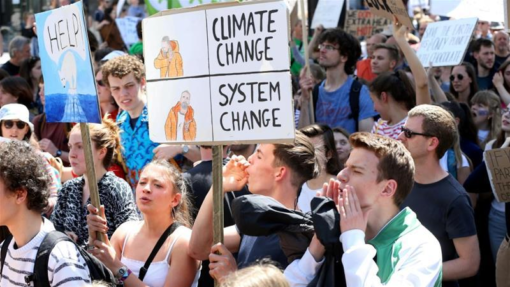
While the world has started experiencing the heat of climate change, the worst, probably is yet to come. What humanity has in store is a probable ‘climate apartheid’, where the poor are most vulnerable while the rich buy their way out of the worst effects of global warming.
“Perversely, while people in poverty are responsible for just a fraction of global emissions, they will bear the brunt of climate change, and have the least capacity to protect themselves,” said the UN Special Rapporteur on extreme poverty and human rights, Philip Alston in a new report submitted to the UN Human Rights Council on Tuesday, June 25. “Even if current targets are met, tens of millions will be impoverished, leading to widespread displacement and hunger,” he added.
Climate change would push over 120 million more people into poverty by 2030 and will have the most severe impact in poor countries. Even if the best scenario of 1.5 degree celsius temperature increase is achieved, by 2100, extreme temperatures in many regions across the globe would leave disadvantaged populations with food insecurity, lesser income and worsening health. Moreover, according to Alston, many will have to choose between starvation and migration. Apparently, humanity will be left with the risk of ‘climate apartheid’ scenario—the rich escaping the overheating hunger and conflict while the rest of the world is left to suffer.
CLIMATE CHANGE TO IMPACT HUMAN RIGHTS AND DEMOCRACY
The report says that basic climate change will heavily impact human rights, including right to life, food, housing and water. With changing climatic conditions and governments’ struggle to cope up with it, democracy could also get impacted. Governments will have to persuade its subjects to accept the major social and economic transformations required, thus rendering civil and political rights vulnerable.
“Most human rights bodies have barely begun to grapple with what climate change portends for human rights, and it remains one on a long laundry list of ‘issues’, despite the extraordinarily short time to avoid catastrophic consequences. As a full-blown crisis that threatens the human rights of vast numbers of people bears down, the usual piecemeal, issue-by-issue human rights methodology is woefully insufficient”—said Alston.
He cited the situation in the US when hurricane Sandy hit in 2012. The vulnerable New Yorkers were stranded without power or healthcare, while the Goldman Sachs headquarters was protected by thousands of sandbags and power from generators. Relying exclusively on the private sector to protect against extreme weathers and rising seas would almost guarantee massive human rights violations—this fact reverberated in Alston’s remarks—“If climate change is used to justify business-friendly policies and widespread privatisation, exploitation of natural resources and global warming may be accelerated rather than prevented.”
NEED TO RE-ENGINEER ECONOMIES
Despite several alarms regarding climate change, from the scientific community or otherwise, governments have marched past all these warnings. And even now too many countries are taking short sighted steps in the wrong direction. What is considered the best scenario today was once considered as catastrophic warming. Even then they are badly failing to meet the carbon emission reductions and climate financing commitments.
Noting that economic prosperity and environmental sustainability are fully compatible, the present stages of climatic conditions demand decoupling economic well-being from fossil fuel emissions. The report suggests a robust social safety net to respond to the unavoidable harms that climate change will bring. This should be a catalyst for states to fulfill “long ignored and overlooked economic and social rights” including social security and access to food, health care, shelter and decent work.
Alston concluded, “There is no shortage of alarm bells ringing over climate change, and an increase in biblical-level extreme weather events appear to be finally piercing through the noise, misinformation, and complacency, but these positive signs are no reason for contentment. A reckoning with the scale of the change that is needed is just the first step.”




